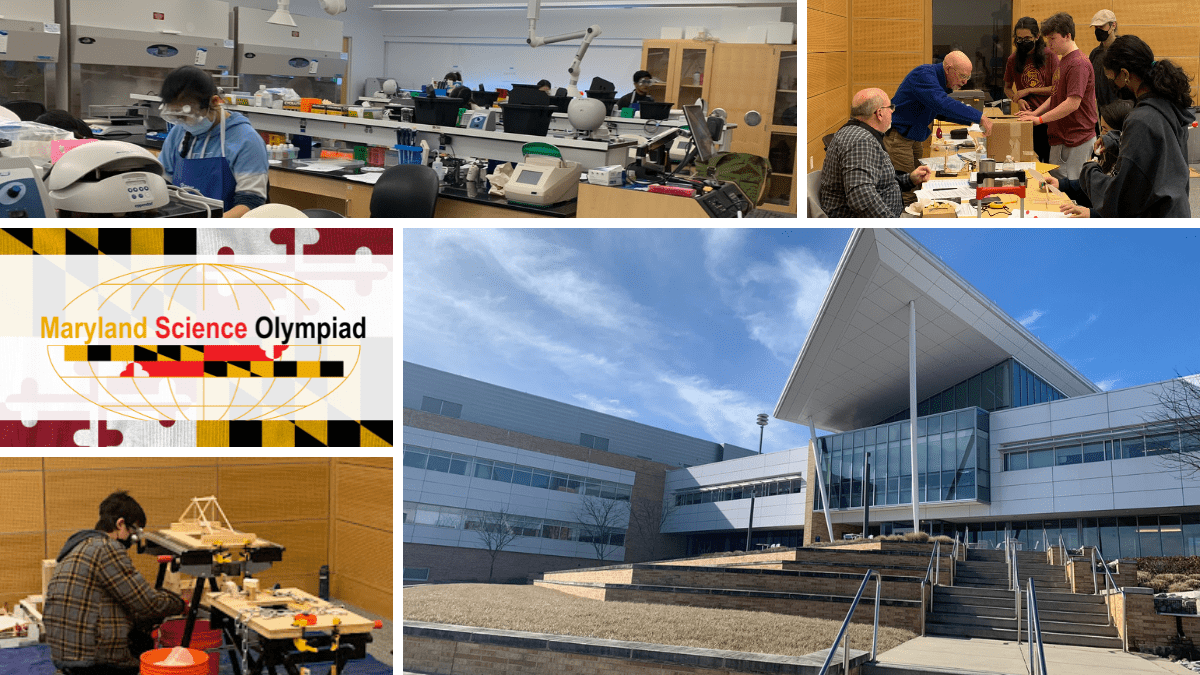
After a COVID Hiatus, Maryland Science Olympiad 2023 Tournament Season Kicks Off In Person at Montgomery College
By Sarah Ellinwood
February 21, 2023
18 high schools. 29 teams. 400+ students. All competing in 23 events testing various science know-how.
Welcome to the start of the Science Olympiad tournament season.
On February 11, 2023, teams from all across Maryland came together at Montgomery College’s Germantown campus for a jam-packed full day of competition, marking the first regional tournament of the year.
While Montgomery College has hosted the competition for five years running, this year’s regional tournament was particularly special, as it was the first one held in person since COVID-19 started gaining traction in the Spring of 2020.
“It’s been a few years since we’ve been on the Germantown campus. And as we’ve seen with everything in the past few years, getting back to in-person and back to a state of normal is not always trivial,” remarked Dr. Robert Bruce, State Director of the Maryland Science Olympiad, during the following day’s award ceremony. “I want to extend my gratitude towards the students as well as coaches, volunteers, and everybody in our community that came together to put on this tournament. Being in person for tournaments is something that’s just thrilling for me and for us to be a part of.”
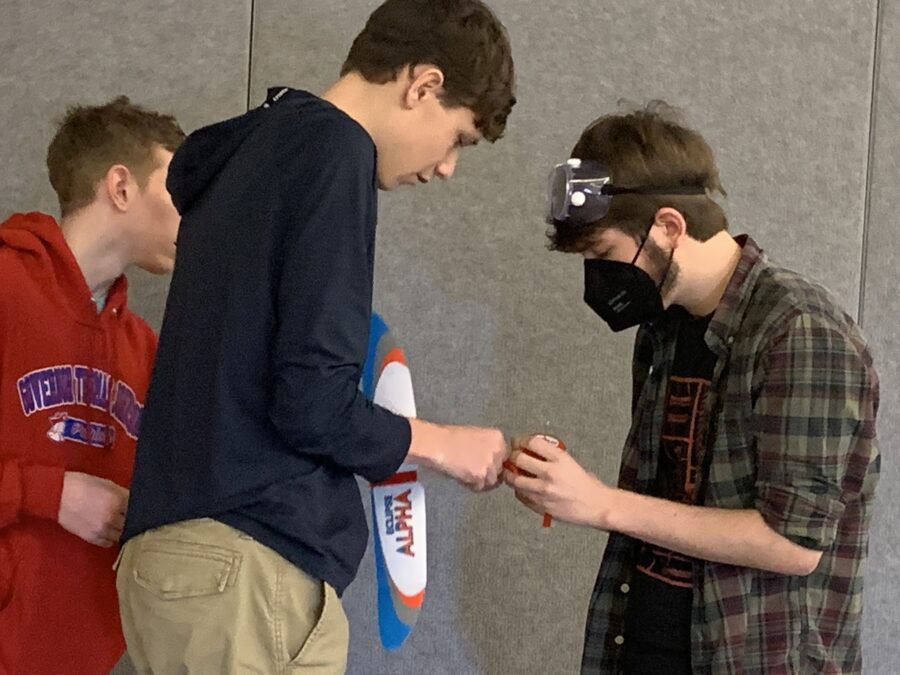
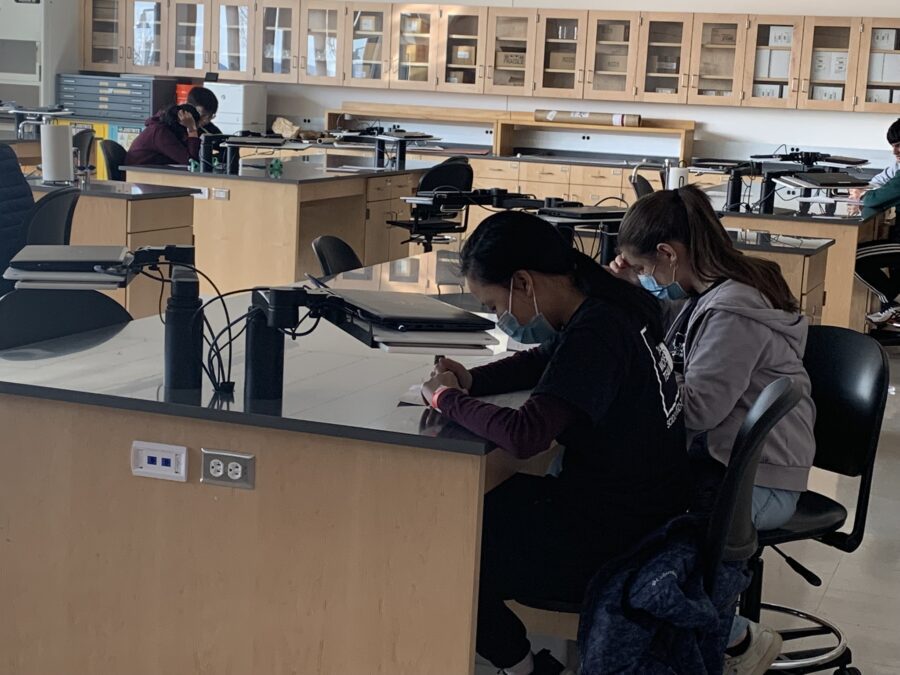

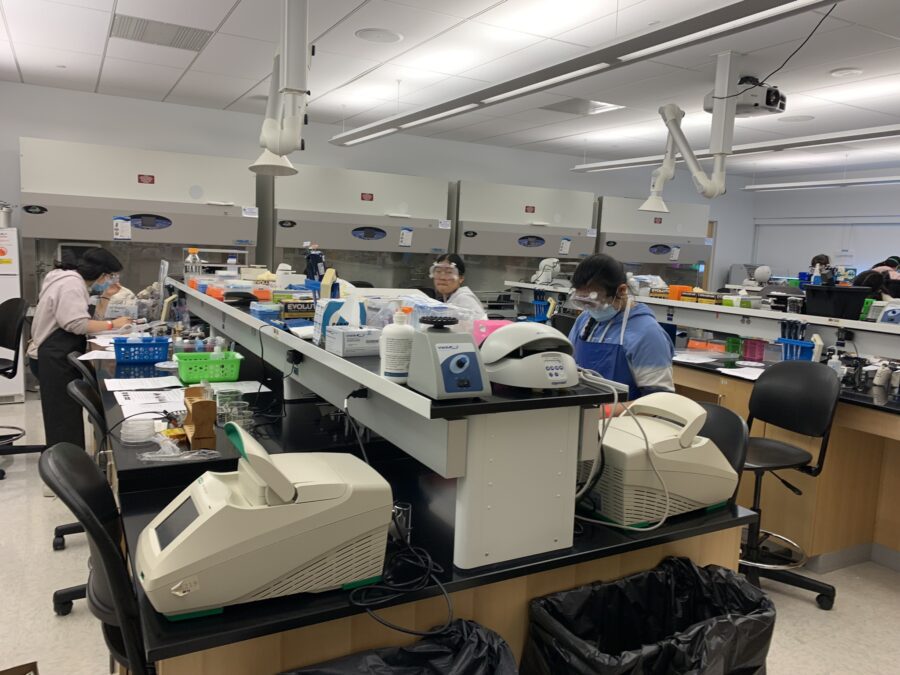

High school teams competed in a series of 23 events throughout the day, from the lab-intensive “Forensics” challenge to hands-on device demonstrations such as “Flight” and “Scrambler” (SOURCE: BioBuzz)
“Being a college entrenched in the I270 Biotech corridor, we are fully aware of our responsibility to serve the area scientific community, providing opportunities to both our future scientists and existing scientists,” said Mark Nardone, Biotechnology Program Manager at Montgomery College and Director/Co-founder of the college’s Bio-Trac program. “This is definitely a yearly feel-good moment for us, the MC Biotech program. You cannot help but smile, seeing the excitement on the students’ faces; the positive energy the 400+ students generate as they prepare to compete is amazing.”
A battle of brains
The Science Olympiad, founded in 1984, is one of the nation’s top team STEM competitions. Elementary (Div A), middle (Div B) and high school students (Div C) are all able to compete at different levels. Under the guidance of coaches, students spend much of their Fall semester learning, building, and tinkering – all in preparation to tackle the Olympiad’s 23 events during the tournament season.
Events span across all areas of science, from social sciences to earth science to chemistry, biology, and engineering. Some events involve test-based problem-solving, while others test the capabilities of student-made contraptions. The event roster is also changed up each year to keep the competition fresh.
A few of the events from this year’s season include:
- Fermi Questions – Teams work together to answer questions that seek fast, rough estimates of a quantity that would otherwise be difficult to measure directly. For example, “How many times does the average person’s heart beat in a lifetime?”
- Forensics: Students are given a scenario and a list of possible suspects. They must perform a series of tests and use available evidence to help figure out who-done-it.
- WiFi Lab: Teams build an antenna device prior to the tournament that can transmit a signal at 2.4 GHz. They also complete a written test about electromagnetic wave propagation principles.
- Write It Do It: One team member will write a description of an object and how to build it, while another team member will try to reconstruct using these instructions
- Flight: Prior to the competition teams build a free flight, rubber-powered aircraft, with the goal of having the most time in the air.
- Scrambler: Teams build a mechanical device that is powered by energy from a falling mass to transport an egg along a track as quickly as possible. The machine must stop as close as possible to a terminal barrier, such as a wall, without breaking the egg.
The teams who come out on top advance to the State Tournament, which will be held on April 22 at Johns Hopkins University, and then to the National Tournament at Wichita State University in Kansas on May 19-20.
In addition to honing their research and writing skills, students also learn first-hand that science doesn’t happen in a bubble. “Teamwork is a required skill in most scientific careers today, and Science Olympiad encourages group learning by designing events that forge alliances. In Elevated Bridge, an engineering whiz and a kid from wood shop can become gold medalists. Similarly, a talented builder and a student with a good science vocabulary can excel in Write It Do It, one of Science Olympiad’s most popular events,” states the Olympiad website.
The concept of “teamwork” also doesn’t just apply to the teams competing – the Maryland Science Olympiad brings together members across the local community. The competition is largely run by volunteers, from parents to professors to scientists from the NIH, FDA, and local industries.
Drumroll, please!
The following high schools that participated in the Montgomery College tournament will be advancing to the State tournament in April:
- Chesapeake Science Point Charter Div. C
- Damascus HS
- Governor Thomas Johnson HS
- Montgomery Blair HS
- Pilgrimage Homeschool Div. C
- Poolesville HS
- Richard Montgomery HS
- Thomas S. Wootton HS
- Urbana HS
- Walter Johnson HS
- Winston Churchill HS
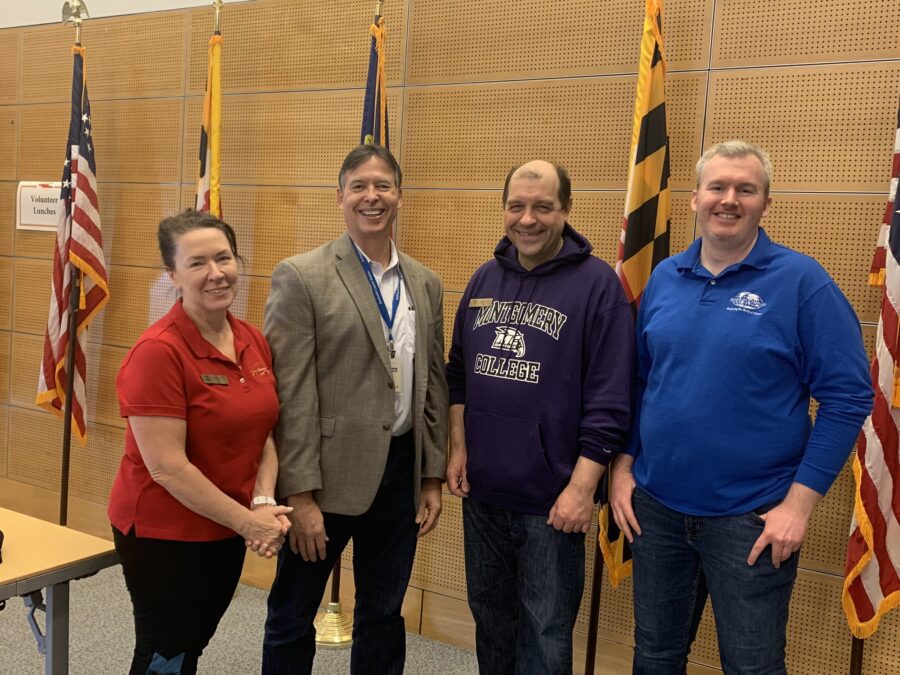
“Thank you to Montgomery College – we’ve missed you the past few years. It felt great. It felt fun. It felt absolutely energetic and absolutely empowering,” remarked Dr. Serguei Kozlov, Tournament Director. “ For the past several years, the Montgomery College Div C tournament has had the responsibility of lighting the torch and being the first major regional competition of the year. I know this torch will continue to be held high for the upcoming regional tournaments as well as the State finals in April.”
The Bioscience Education Center (BEC), located on the Montgomery College Germantown, MD Campus, is a 125,000 sq/ft training facility containing 25 wet labs, smart classrooms as well as state-of-the-art lab equipment currently found in area biotech and biopharma companies. Home of the MC Biotech program, the BEC provides scientific training at all levels, from early college students to MD/PhD research scientists.
Want to get involved in the Science Olympiad?
- Follow the Maryland Science Olympiad on Facebook to stay up to date with the latest events
- Donate to the Science Olympiad
- Volunteer for one of the upcoming competitions
- Check out the official Science Olympiad brochure to learn more about how to become a coach or start a team
- About the Author
- Latest Posts
Sarah Ellinwood is BioBuzz’s Managing Editor. A scientist by training and a science communicator at heart, Sarah specializes in making complex concepts understandable, engaging, and exciting. She received her Ph.D. in molecular and cellular biology with a focus in infectious disease immunology from the University of Maryland and is passionate about all things related to scicomm, peer mentorship, and women in STEM.







